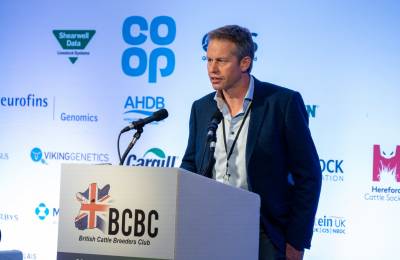
Organic dairy farmer Wil Armitage said genetics was a key part of a healthy business alongside good cow and soil health, people, and profit.
Wil milks 900 cows across three farms comprising almost 3,000 acres under various agreements.
Cow health
Moderate-sized Holsteins make up the mainstay of the herds.
“We have stuck with the Holstein, and she has delivered,” said Wil.
Bulls are selected for Predicting Transmitting Ability (PTA) of +10 for fertility, alongside high milk solids production. They must also be negative for stature and somatic cell count and less than 500kg of milk.
The spring-block herd comprises of 200 cows and is averaging 6,200 litres at 4.4% butterfat and 3.4%. protein. The autumn-calving herd of 350 cows is yielding 7,600 litres at 4.7% butterfat and 3.6% protein. The herds average just four cases of mastitis/100 cows.
People
Wil said having a good team was integral to running a successful business.
"We have a vet student that has been back five times. She says it is because it feels like home. It is important for staff to feel they belong, and they are having an impact.”
Soil health
Wil undertook a Nuffield scholar looking at the role of soil in producing nutritious food.
He said: “Dead soils produce empty calories with very little mineral content which challenge our stock’s immune systems.”
NPK was a blunt tool for sampling soil, he told delegates. Instead, he favours the Albrecht soil analysis for establishing base saturation levels – the total amount of nutrients available in the soil.
He revealed the steps he was taking to maintain good soil health, including growing a diversity of crops and avoiding bare soils.
Fodder beet is sown after third-year red clover and Italian ryegrass once third-cut silage has been taken. A green cover crop of oats, vetch, and fodder radish is planted and ploughed in as green manure.
He added: “I don’t have an issue with ploughing as long as we are feeding that soil biology. We have got to keep it green.”
Soil health has been fundamental in helping him successfully grow quality forage with low inputs.
Cows are grazed from March until November. On the grazing platform, grass and white clover leys grew 11t DM/ha last season.
Meanwhile, his soil management is helping sequester carbon with recent audits showing one of his farms (Keythorpe) is producing just 0.74kg of carbon/litre of milk after sequestration.
Wil was speaking at the British Cattle Breeders Conference in January.